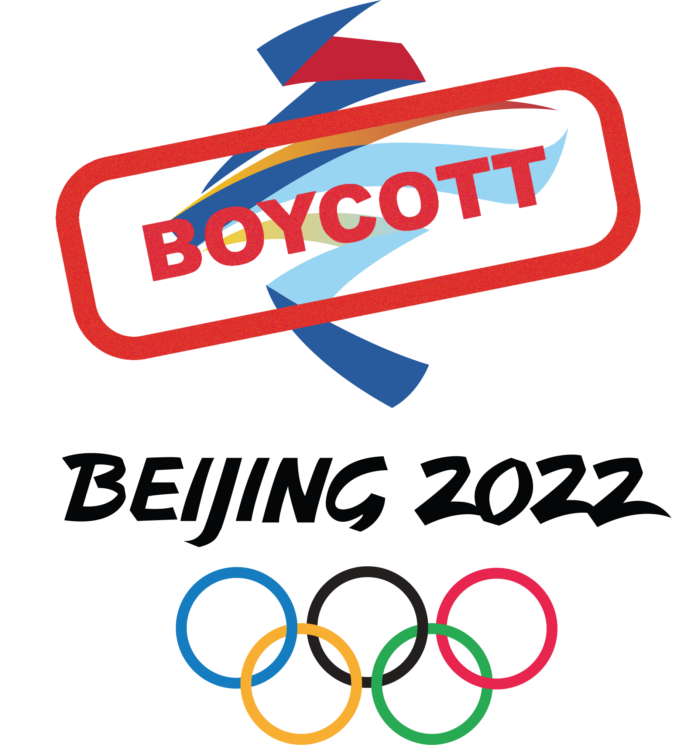The 2022 Winter Olympics in Beijing spark conversation about the role of politics in sports and the effectiveness of boycotts
By ALINA ISSAKHANIAN — features@theaggie.org
Much conversation around the 2022 Winter Olympics in Beijing, China, has been focused on the current human rights crisis in the country. Globally, governments and international entities have chosen to diplomatically boycott the games, citing harsh human rights violations committed by the Chinese government in recent years.
In March 2021, the Biden administration declared China’s treatment of Uyghur Muslims a genocide, officially categorizing it as a crime against humanity. According to the Human Rights Report discussing the poor treatment of Uyghur Muslims, China was involved in the imprisonment, torture, enforced sterilization and persecution of Uyghurs, as well as members of other religious and ethnic groups.
The U.S., U.K., Australia and Canada have diplomatically boycotted the games in an effort to call out the human rights abuses in China. While each country has its own definition of boycotting, generally, it includes that dignitaries representing the country’s government do not attend the games while athletes still get to compete.
UC Davis professor of political science and Department of International Relations director Ethan Scheiner explained that international power dynamics play a large role in who does and does not boycott in situations like these.
“The United States, in particular, is one of the few countries that has less to fear from Chinese retaliation than other countries,” Scheiner said. “The fact that the United States is such a big country is a big factor. Also, the United States actually has a much stronger stake in pushing for democracy and has done so for a longer period of time, whereas others have been less inclined to do so.”
Many believe that the U.S. should have taken a stronger stance in opposition to China’s human rights violations, since they are classified as crimes against humanity. Scheiner said that he does not believe that the diplomatic boycott will be very effective, and that both the 2008 Summer Olympics and the 2022 Winter Olympics could have been opportunities for the U.S. to make a more impactful statement.
“What China learned in 2008 when it hosted the Summer Olympics was, ‘Hey, we can do whatever we want, and nobody’s gonna make us change,’” Scheiner said. “We saw that carryover where China became increasingly aggressive between 2008 and 2022. Nobody ever called them on it and so now the problem still exists. So in many ways, either in 2008 or in 2022, [this] was sort of a lost opportunity to send a stronger signal.”
However, Scheiner explained that most likely, the U.S. did not take any other steps because of international power dynamics and economic concerns.
“If China wanted to, it could lash out at the United States in various economic ways,” Scheiner said. “American companies and sports leagues — especially the NBA — are terrified of losing the Chinese market […] If China wanted to boycott the 2028 Los Angeles Summer Olympics, and not show it on television or market it at home, that would have an economic impact on the ability of people trying to hold those Olympics and athletes competing in them to make money using the Chinese market.”
He also said that this is not the first time that the U.S.has boycotted an Olympics. The U.S. actually implemented a full boycott of the 1980 Moscow games, during which the U.S. did not even send athletes to compete. According to Scheiner, some believe that even a full boycott — like that in 1980 — is not very effective.
“The main lesson that people draw about boycotts they draw from 1980,” Scheiner said. “[After the 1980 games], when everybody came away with ‘oh, boycotts don’t work,’ if you boycott all you do is hurt the athletes. And so I think the United States is always coming back to that example and saying, ‘Okay, we shouldn’t boycott because all it did was have our athletes lose their opportunity, and everybody’s mad about it.”
First-year psychology student Michell Bancks, a volleyball player and co-captain for Davis second club team, said that athletes often see the Olympics as a career-defining moment, and some believe that those spots should not be lost due to politics.
“Many Olympic athletes can only perform at the Olympic level for a few Olympics,” Bancks said. “I think it’s rare for an athlete to attend more than three Olympic Games, and between those competitions, it’s even more rare for an athlete to medal more than once. There are athletes who are at their prime for this Olympics and won’t be as competitive in four years, so they should be given the chance to try for a medal.”
However, Scheiner pointed out that others believe that it’s not possible to keep politics and sports completely separated.
“It’s sort of like saying let’s keep life out of sports,” Scheiner said.
First-year American studies major Nic Sardo agreed with Bancks that the loss to the athlete is great if they do not compete, but he said that choosing to do so sends a strong statement.
“An athlete can sacrifice so much and spend years training for the Olympic games so if that same athlete decides that their energy is put to better use by boycotting those games, I believe that is very brave. By boycotting or speaking out against one’s own country, or against the host country, that athlete is putting a lot at risk and may have their whole life disrupted because of that one decision.”
Written by: Alina Issakhanian — features@theaggie.org







